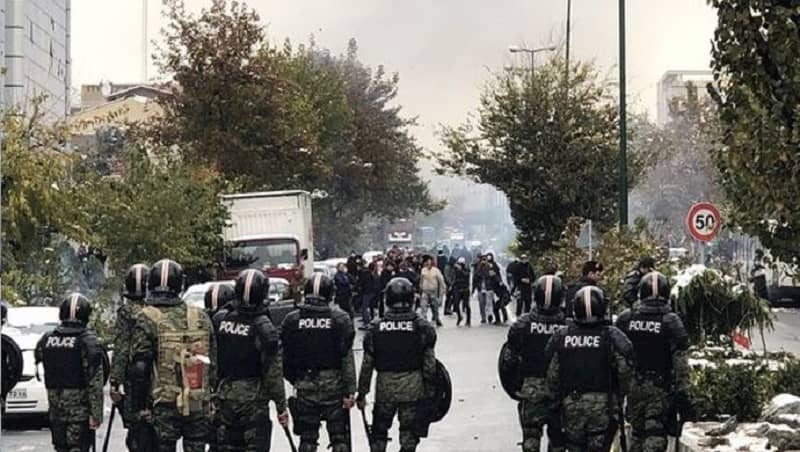
Earlier this week, the United States Treasury Department announced that new sanctions had been placed against a dozen Iranian officials in regard to human rights abuses that took place during protests in Iran in 2009, and the nationwide uprising in November 2019.
The 2019 uprising came less than two years after a similar bout of protests that sparked calls for regime change in Iran, and due to the intensity of the demonstrations that spread across the country and threatened to destroy the Iranian regime, regime officials panicked and launched a brutal attack to quell the unrest.
The National Council of Resistance of Iran (NCRI) said, “Security forces and the Islamic Revolutionary Guard Corps opened fire on crowds of protesters almost immediately, and the National Council of Resistance of Iran (NCRI) later reported that the death toll from that crackdown exceeded 1,500 in a matter of only days.”
Along with the numbers of those who had been killed during the attack, a further 7,000 people were arrested, as stated by government officials. However, the NCRI estimated that the true figures are twice that amount.
During the 2019 uprising, Ebrahim Raisi was the head of the Iranian judiciary who oversaw the brutal crackdown of protests. He later went on to be selected as the next president of the regime and was inaugurated into the position in August of this year. His presidential campaign sparked uproar within the Iranian activist community due to his involvement in both the 2019 uprising, and the massacre of over 30,000 political prisoners during the summer of 1988, an appalling crime against humanity that experts have since classified as an act of genocide.
Amnesty International issued a statement earlier this year following the presidential election which stated that the fact that Raisi was able to rise to power despite his history of human rights abuses and crimes against humanity is a “a grim reminder that impunity reigns supreme in Iran.”
The NCRI said, “Since before Raisi was confirmed for the presidency, some of the regime’s critics have been warning about the potential for his administration to accelerate various malign activities, including crackdowns on dissent and abuses of human rights.”
In the months following Raisi’s inauguration in August, at least 150 prisoners have been executed, and additional death sentences have been issued for some current prisoners, some of whom have been imprisoned for taking part in the 2019 uprising.
In the case of Navid Afkari, an Iranian champion wrestler, he was imprisoned with his brothers for taking part in earlier protests, and was executed this year for supposedly murdering a security guard. He had been allegedly tortured until he confessed to the crime, however, evidence came to light that proved his innocence but too late to spare his life.
The NCRI said, “In recent weeks, the Ministry of Intelligence and Security has not only made threatening statements to activists and their families but has also summoned a number of them to court and re-arrested certain individuals who were released in the wake of the initial crackdown.”
The regime’s brutal crackdown of protests continued recently during protests of water shortages in the city of Isfahan. Around 300 people were arrested as the regime’s security forces attacked the crowds with tear gas and pellet guns. Up to 40 protesters were injured as they were struck in the face by pellets during the attack and left blind in at least one eye.
Back in July, the President-elect of the NCRI, Maryam Rajavi warned at an online summit that, “In the new era, the hostility, and enmity between the Iranian regime and society will intensify more than ever before.”